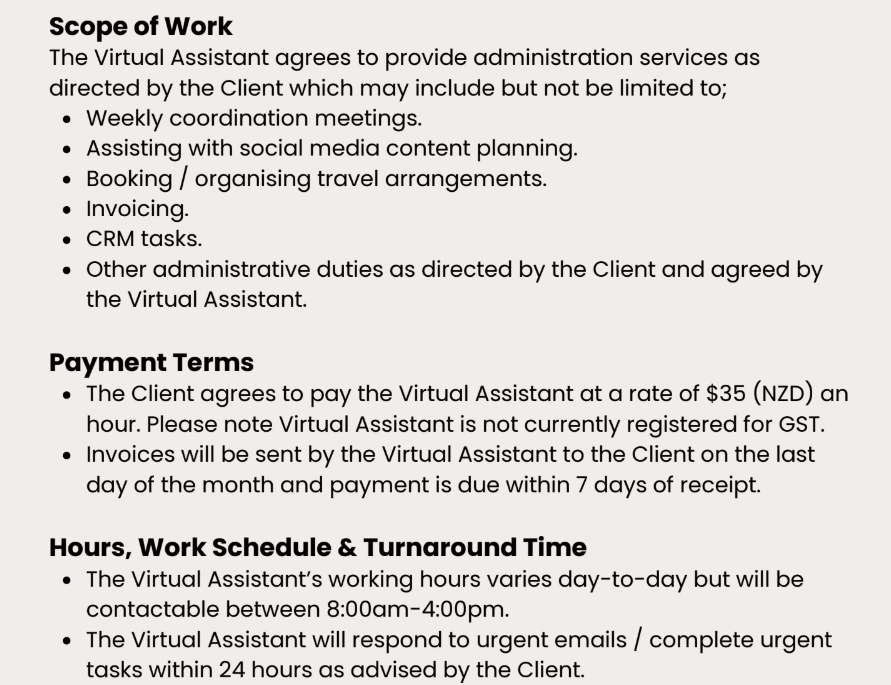A non-lawyer’s opinion: T&Cs should be more relevant and relatable
A confident, friendly plumber visited the other day. He helped me work out how to reconfigure my laundry so I could fit a pantry in there. He was great. I was about to email back a ‘yes’ to his quote when… I saw the terms and conditions he’d attached.
They weren’t fair.
They said that if either of us took the other to court, I would have to pay all the fees. His fees and mine. Even if he took me to court.
No thanks. I’ll find another plumber.
This blog explores the harmful reputational effects of creating unfair T&Cs
Why would you make me swipe left?
It made me wonder why a business would put things in their terms and conditions that could scare off an otherwise enthusiastic customer.
My guess is the lawyer who wrote the T&Cs assured him that it’s all ‘perfectly normal’ and ‘industry standard’.
I also admit that the 3-column tiny font, justified text, and legalistic language didn’t improve my impression of what it would be like to have a dispute with this plumber.
It’s like those Tinder profiles that have you interested until you see the last-minute comment scrawled at the bottom: ‘No baggage. No drama.’
Oh no. Swipe left.
Screenshot of the plumber’s terms. This was just the first of two pages!
By contrast…
I hired a contractor recently who sent me her agreement to sign for a month of services.
The agreement made me like her even more. Everything in there was relevant to the work she did in her business. No generic text.
There was a congruence between the person I’d met and the document I was reading. It made me trust her more.
Rather than focusing on worst-case scenarios, she made my – and her – responsibilities clear. I got the impression she was confident it would all go swimmingly because we would understand both sides of the relationship.
Also, she’d formatted the document nicely. It didn’t look intimidating. (It makes a difference!)
Screenshot of the contractor’s agreement. This was also the first of two pages, but what a different reader experience!
Take the opportunity to be relevant and relatable
An agreement like terms and conditions is part of the experience your customer has of your business. T&Cs are a great opportunity to express your relational values.
What inspires confidence:
Relevant terms – only about the things you will or could interact on
Content that touches on both of your responsibilities to each other
Written in the voice of your business (which is your voice if you’re a sole trader)
Invitingly formatted
What makes customers worry or wobble
Generic content that could be relevant for any number of businesses
Unfair terms that favour the business over the customer
Written in legalese
Formatted like it’s not supposed to be read (you know what I mean: tiny font, wall-to-wall text, miles long)
Try focusing on:
what you expect from your customer, for example, that they’ll pay within a month of getting a bill
what you are and aren’t taking responsibility for – your installation work but not the products you install
what your commitment to your customer is – that you’ll refund their deposit if you end up being unable to do the work
Why are intimidating T&Cs the norm?
I think a huge part of what makes soooo many T&Cs intimidating is the misconception of them as a security blanket – businesses think ‘the more comprehensive our T&Cs, the more protected we are from dodgy customers’.
But I think dodgy customers will be dodgy customers regardless of what they sign. If they’re the ‘vexatious litigant’ type, they’ll find a reason to be incredibly difficult to deal with.
I also think, as business owners, we often have the power to walk away. Take the hit. Move on. Do we really need to cover every eventuality in a T&C doc if we know we wouldn’t have the stomach for a protracted battle trying to get cash from someone who, it turns out, doesn’t have it?
This blog explores the harmful reputational effects of creating unfair T&Cs
Lawyers, please comment
If there is a dispute, do T&Cs really fend off a well-lawyered combatant out for blood?
I imagine T&Cs are most useful in helping business owners to nip disputes in the bud: ‘Please see the term that you agreed to – here’. ‘Oh yeah, darn. Okay’.
But if it gets to the point that an unhappy customer takes a business to court, or a business has to use legal means to insist that someone pays up, things have got polarised. My guess is the T&C doc no longer feels relevant for one of the parties.
At that point, surely the T&Cs fade into the background and the legal questions are more about ‘Did the work occur?’ ‘Did the customer benefit from the work?’
Keen to hear your thoughts!


